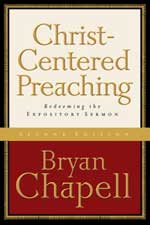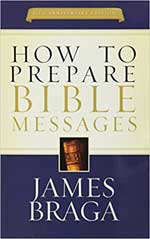Following the 3 Marks of a Godly Father (Deuteronomy 6:6-9) equips you to lead your family through life with clarity and conviction – Father’s Day Sermon.

3 Marks of a Godly Father
Dads, fatherhood isn’t a sprint—it’s a marathon. It’s not about quick wins; it’s about consistent, faithful steps over time.
Some days, it feels like we’re crushing it. Other days, we’re just trying to survive. But the race is still on. And like the apostle Paul said in 2 Timothy 4:7, “I have fought the good fight, I have finished the race, I have kept the faith.” That’s the goal, men—to finish well.
This morning, I want to share 3 Marks of a Godly Father from Deuteronomy 6:6-9 (Father’s Day Sermon). Let’s run this race right.
1. He Loves the Lord Deeply
“You shall love the Lord your God with all your heart, with all your soul, and with all your strength.” (Deuteronomy 6:5)
A. His love begins in the heart
Godly fatherhood starts in the heart, not in outward performance. Before you can lead your family well, you must love God deeply. Deuteronomy 6:5 calls us to love Him with all our heart, soul, and strength. That is total devotion. Your children will notice what truly matters to you by what fills your heart first.
When your heart is full of God, your life starts to reflect His presence in everything you do. You cannot fake this. It shapes how you respond under pressure, how you pray, and how you prioritize. Proverbs 4:23 says, “Above all else, guard your heart, for everything you do flows from it.” Lead from the overflow of a surrendered heart.
B. His love belongs in the home
Faith that stays in your Bible but never shows up at home is not the kind of love God commands. Your family needs to see your love for God in the way you speak, serve, and sacrifice. Love that is real will always show itself. Let your walk with God be more than Sunday morning; let it be your lifestyle.
Joshua said it clearly: “As for me and my house, we will serve the Lord” (Joshua 24:15). That starts with you, Dad. When your kids hear you pray, when they see you forgive, when they watch you worship, they are learning what it means to love God. Your home is the primary classroom of faith.
“This material provides some ideas and thoughts for a message for Father’s Day.”
2. He Teaches His Children Diligently
“You shall teach them diligently to your children, and shall talk of them when you sit in your house, when you walk by the way, when you lie down, and when you rise up. (Deuteronomy 6:7)
A. He teaches with intentional words
Teaching does not happen by accident—it requires purpose. Moses said, “Impress them on your children.” That means talk about God’s truth on purpose. Don’t leave it to chance. Your words carry weight. When you speak Scripture with sincerity and relevance, you help build a faith foundation in your child’s heart that can last a lifetime.
Your children need to hear God’s Word not just in church, but from your mouth at home. Talk about it in the car. Pray about it at dinner. Ask spiritual questions. Proverbs 22:6 reminds us, “Train up a child in the way he should go…” That training starts with words spoken consistently with love, clarity, and truth.
B. He teaches with consistent moments
Teaching moments happen all day, not just during family devotions. Deuteronomy 6 shows faith lived out while walking, sitting, and lying down. In other words—real life. You do not need to be a Bible scholar to disciple your kids. You just need to be present, aware, and willing to point them toward God in everyday situations.
When your child asks a tough question or faces a challenge, use it as a moment to guide them spiritually. Consistent moments build a consistent message. Ephesians 6:4 urges fathers to “bring them up in the training and instruction of the Lord.” That takes daily effort, but it makes an eternal difference.
3. He Leads by Example Daily
“You shall teach them diligently to your children, and shall talk of them when you sit in your house, when you walk by the way, when you lie down, and when you rise up. You shall bind them as a sign on your hand, and they shall be as frontlets between your eyes, and you shall write them on the doorposts of your house and on your gates. (Deuteronomy 6:7–9)
A. He leads with everyday habits
Faith is not just for Sundays—it is a way of life. Moses tells fathers to bind God’s Word on their hands and foreheads. That means everything you do with your hands and everything you think with your mind should reflect God’s truth. The small, daily decisions you make as a dad add up to a powerful testimony.
Your family sees the habits you form. They notice how you spend your time, how you treat others, how you respond to stress. Colossians 3:17 says, “Whatever you do… do it all in the name of the Lord Jesus.” Daily consistency speaks louder than a thousand lectures. Let your habits preach the gospel in your home.
B. He leads with visible faith
Moses said to write God’s Word on the doorframes and gates. That is a visible declaration: “This house belongs to the Lord.” Your faith should not be hidden—it should be obvious. Your family should know where you stand. Let them see your faith in how you lead, love, worship, serve, and even repent.
Your example creates an atmosphere. A godly father shows what it means to follow Christ by walking it out daily. Titus 2:7 says, “In everything set them an example by doing what is good.” That kind of visible faith builds trust and inspires your children to follow the same path.
Conclusion
Men, the calling to be a godly father is not easy—but it is possible when we walk closely with God each day.
God doesn’t expect perfection from you. He’s looking for faithfulness. He’s looking for hearts fully His, homes filled with His Word, and lives marked by daily devotion.
I think of Noah—he wasn’t the flashiest guy, but he walked with God. And because he did, his whole family was saved (Genesis 6:9).
So let’s trust God, love Him deeply, teach intentionally, and lead faithfully. Your influence matters more than you know. Run this race well.
Source Material
Believer’s Bible Commentary by William MacDonald
The MacArthur Bible Commentary by John MacArthur
Must Have Sermon Preparation Books
The Importance For Application

QUOTE by Bryan Chapell: People have the right to ask, “Why did you tell me that? What am I supposed to do with that information? All right, I understand what you think – so what?” The healthiest preaching does not assume listerers will automatically see how to apply God’s truths to their lives; it supplies the application people need.
If even the preacher cannot tell (or has not bothered to determine) how the sermon’s truths relate to life, then people not only are unlikely to make the connection, but also will wonder why they bothered to listen (Christ-Centered Preaching by Bryan Chapell [Amazon Books]).
The Importance of Structure

QUOTE by Charles W. Koller: Preaching without notes is largely a matter of structure … without sound structure, a real message may prove obscure and impotent.
Sound structure will add immeasurably to the power of a sermon and good homiletical habits are a priceless resource to the pulpiteer … an outline that stands out clear and sharp is the first long step to freedom in the pulpit (How To Preach Without Notes by Charles W. Koller [Amazon Books]).
The Importance of the Conclusion

QUOTE by James Braga: The conclusion is undoubtedly the most potent element in the entire sermon. If it is poorly executed, it may weaken or even destroy the effect of the preceding parts of the discourse. But some preachers forget the importance of the conclusion with the result that their sermons, which otherwise are carefully and thoroughly prepared, fail at the crucial point.
Instead of concentrating their material into a burning and powerful focus, they allow the current of thought to be dissipated by commonplace or feeble remarks at the close (How To Prepare Bible Messages by James Braga [Amazon Books]).
